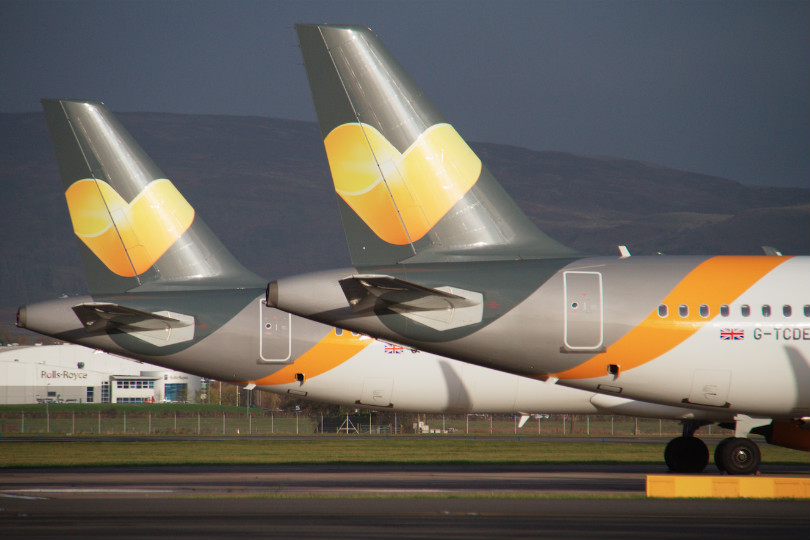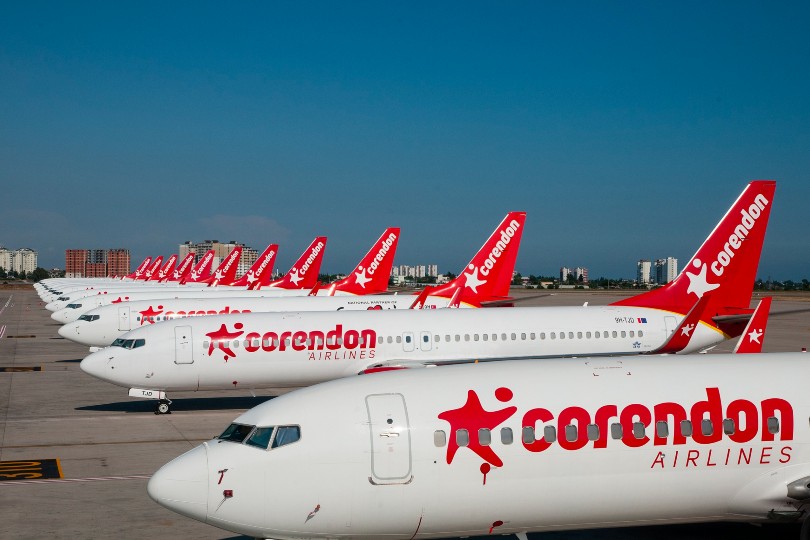The great British take-off: filling the Thomas Cook-shaped gap in travel
 Gary Noakes
Gary NoakesSay it quietly, but this month should mark the start of what will – fingers crossed – be the first full season of overseas summer holidays for two years.
Hopefully, it will be uninterrupted by further outbreaks of Covid, and any further repercussions from Russia’s invasion of Ukraine, but how far it goes towards a full-scale recreation of summer 2019 is yet to be seen. Partly, this will be down to airlines and operators being cautious, but there is also – three years later – the delayed fallout from the collapse of Thomas Cook.
Cook failed on 23 September 2019, but operators hoping to capitalise on this the following summer saw their ambition thwarted by the pandemic. An example of this early optimism for 2020 came from Jet2.com, which boasted of 10 new destinations from Manchester and more than 3.5 million seats on sale from the airport – 25% more than it offered in summer 2019. It also planned to base a further four aircraft at Birmingham, increasing capacity by 32% to 2.2 million seats.
Tui, meanwhile, planned to offer 2,000 new hotels and two million extra seats, but all these plans were quickly stymied by Covid. Understandable caution followed in summer 2021, with Jet2 planning 5% extra capacity at Manchester and 7% at Birmingham, only to see sales targets evaporate once again.
Cook left a near-2.5 million annual passenger gap in the market that, pre-pandemic, others had begun to fill – but is there still a job to be finished?
January 2020 saw the emergence of easyJet holidays, currently licensed for 856,000 packages annually. The airline itself also has an Atol, adding another 180,000, with the carrier planning “near 2019” levels of flying. The 1.05 million packages this adds to the market is a fair chunk of what Cook left behind, but gaps remain.
Pre-pandemic, Jet2 was licensed for 4.8 million annual passengers. That figure is now 3.75 million, the bulk in summer. Similarly, Tui UK, which, like Jet2, renewed its Atol in September, has shed 450,000 seats since before Covid when it was licensed for 5.55 million annually.
Rough calculations show easyJet has put in one million packages, while Tui and Jet2 have taken out about 1.5 million. A deeper delve into the summer peak reveals a different picture, though, with signs operators and airlines are betting the house on a narrower window of profitability.
New entrants
Exclusive Cirium data obtained by TTG places the number of flights from major leisure carriers during the summer peak (1 Jun to 31 Aug) on par with 2019 at 228,000. They will offer 40.3 million seats, only 866,000 fewer than in 2019.
Of these, easyJet has 29.5 million seats on sale, 2% fewer than the same period in 2019, across 166,000 flights, down 7,800. Jet2.com will offer nearly seven million seats, up almost one million on 2019, across 35,760 flights, 3,000 more than 2019.
By contrast, Tui’s capacity has fallen from 4.9 million to 3.8 million, down 23%, yet it plans to operate nearly 15% more flights – 26,700 compared with 23,300. This might be due to a reduced long-haul programme.
Added to these are 40,000 extra seats just announced by easyJet, with 20,000 from Liverpool and 6,000 from Manchester to Malaga alone, highlighting how summer capacity can be increased according to demand.
Sunvil managing director Chris Wright said he currently felt the market was smaller than in 2019, but added: “I’m sure there will be some variations this year if demand continues, and we will probably see increased numbers for 2023.”
There are new entrants too, with Turkey’s Corendon Airlines putting 500,000 seats into the UK market this summer. The country looks set for a good summer thanks to the Turkish lira trading at around 18 to the pound, nearly double that of 12 months ago.
Some Cook capacity has also been filled on the scheduled side. Thomas Cook Airlines flew from Manchester to the Caribbean and US; this has been replicated with Aer Lingus debuting non-stop services, and Virgin Atlantic filling other gaps.
Disciplined approach
One factor this summer could be the government’s reinstatement of the “use it or lose it” airport slot rule for summer 2022. Pre-Covid, airlines had to use slots 80% of the time or return them; the threshold this summer is 70%.
At Gatwick, British Airways will launch new subsidiary BA EuroFlyer in the autumn. Meanwhile, to protect its slot holding, fellow IAG carrier Vueling is filling some gaps, including seven flights a day from Barcelona, perhaps prompting some cheap weekend breaks.
Hopefully, this will not be the norm and a disciplined approach will prevail as, post-Covid, the industry has a lot of profitability to regain.
Sign up for weekday travel news and analysis straight to your inbox

Gary Noakes
Supplier Directory
Find contacts for 260+ travel suppliers. Type name, company or destination.















